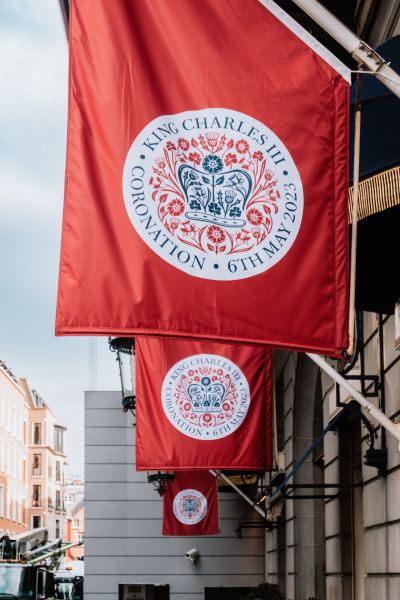
Having a king – and the obsession with ‘celebrity’
Is King Charles merely an outdated royal, and his throne an anachronistic throwback to medieval times? A growing number of people seem to think so, including a young activist in the NZ Herald who arrogantly declared, at the age of 23, that God doesn’t exist, and the monarchy is a waste of money. (As if he would know…)
There is also muddled thinking about the role of the king, amidst a great deal of ignorance. Many don’t actually know what the king is meant to do or be, or what the nature of a constitutional monarchy is that undergirds his kingship. As a result, the call for Prince William to be crowned king instead of Charles was really an ignorant call for a celebrity to take the throne.
A celebrity is usually young, attractive, and personable – and preferably has an attractive spouse and family. William fits that bill. But Charles doesn’t. Neither does his wife. Divorced, and a so-called ‘marriage-breaker’, Camilla has gradually been accepted into some parts of society, to the extent that she also has been crowned. But neither Charles nor Camilla is seen as relevant by younger people, in particular.
What about abolishing the monarchy?
Those who call for a republic and the abolition of the monarchy cite cost, irrelevance, elitism, and anachronism as some reasons for its abolition. A closer look at how a constitutional monarchy functions, and a comparison with other countries, gives pause for thought. A balance of power, with its checks and balances, that a constitutional monarchy offers, is not to be sneezed at.
The continuity of the monarchy also is in sharp contrast to the constant round of presidential elections, particularly in the USA, and where the best person for the job does not necessarily get voted in. Donald Trump is a prime example.
People also fail to see that the cost of the coronation is offset by the revenue that flows into the country because of the part the event plays in promoting Brand Britain – as many people note, there’s no other country that does pomp, pageantry and formality as well as the Brits. People visit because of the history, and particularly when it is being made.
More than a crowning…
There is an even deeper significance to the monarchy. It can be found in the nature of the coronation service itself. Most media commentators skirted around the service in the reports and opinion pieces that emerged, focussing instead on the trivial: who was there, what they were wearing, how cute the royal children were, the story of the crown jewels, etc.
Some mention was made of the service being ‘ancient’, maybe ‘religious,’ and even a few recognised it was an Anglican service. One or two features of the service may have been mentioned, but the key thrust of the service was barely touched on in the media.
A service of commitment
During the service the king promised both a wholehearted commitment to God – and to the service of the people. This underlined the promise he made during his Christmas Day speech in 2022. The service was geared to equipping him with what was needed for his role, which he was to take up under the authority of the King of Kings himself. The service also gave him private moments (behind the screens) that were between God and himself, when he was anointed. (How counter-cultural is that, when TV cameras want to focus on everything – including a lip-reader deciphering Prince Harry’s conversation with his cousin before the service began.)
Despite the Elizabethan language used, the deeply Christian tenor of the service permeated through and undergirded all that the coronation was about.
Media commentators either ignored that, didn’t understand or comprehend it, or couldn’t cope with the notion of a life-long commitment. (Making such a commitment is counter-cultural in today’s ephemeral world – and the uproar about possibly swearing an oath of allegiance to the king from one’s viewing couch, showed what the general public thought of that idea.)
The coronation – a counter-cultural event
In a western world where so much is temporary; where fashion, relationships, and jobs are changed, almost as frequently as some people change their cars, the notion of making a commitment before God, and before people, would strike many as being anachronistic and simply weird.
Celebrities too come and go, (and they age) and the fact that people expect the monarchy to be not much more than a celebrity family who do charitable works and open buildings etc, shows how little the coronation ceremony itself would have been understood, or have resonated with them.
A king who cares
Charles had a lot of input into his coronation service. He trimmed it down (2000 guests, instead of 6,000 as was the case with his mother’s service), two hours instead of three, and only his son, the first in line to the throne, promising allegiance during the service instead of a whole line-up of peers. The music was a mix of ancient and recent compositions, and the participants included women, those from other denominations and other faiths, and a variety of ethnic groups.
But the key elements in the coronation service Charles didn’t change. The awareness that his authority comes from God, the promise to serve God and the people for his whole life, and the reminder that it is God who equips him and provides what is needed to enable him to serve as king; these things were foundational.
During his mother’s coronation, because Christendom was still the cultural milieu of the time, such elements would have been seen as a matter of course. Seventy years later, as Prince of Wales, Charles has already shown that he cares deeply for both people and the environment – and the coronation service was a fuller pledge made to what has been a years’ long ongoing commitment.
The Big Help Out
The theme of service was more than a token gesture. It carried over into the special holiday on Monday that the UK enjoyed after the coronation. The aim of The Big Help Out held on that day was to use volunteering to bring communities together and create a lasting volunteering legacy from the coronation weekend. Many royals and MPs were seen helping out at various charities and community events throughout the country, putting into the practice the notion of service.
‘I came to serve, and not to be served…’
These words of Jesus epitomise the way King Charles wants to live as king. Whatever we think of the monarchy as an institution, or whatever we think of Charles as a person; whether we are royalists or republicans, it is striking that for now, in our increasingly secular society, we have a monarch who wants to, and has promised, to continue in the footsteps of his mother, and to live a life of service to God.
Liz Hay is old enough to remember the coronation of Queen Elizabeth II, but TV had not then become part of NZ society, so it was mainly black and white news reels at the movie theatres that featured the event, along with colour photos in magazines. These were the days when the national anthem was played at the start of the movies; hymns, prayers and Bible readings featured at state school assemblies, and most people in NZ accepted the monarchy in the same way as they accepted Christianity – as the default position to tick during the 1951 census. Liz notes that in today’s changed world it is noteworthy that the new king has deliberately chosen to have a thoroughly Christian coronation service.

Liz Hay rejoices in living in a beautiful part of God’s creation in a high country mountain basin; and she also rejoices in hearing stories of God at work in people’s lives. One of her favourite activities is reading fascinating biographies that illustrate the wonderful ways God works uniquely with each person.